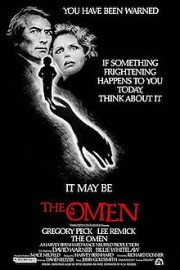The Omen
Richard Donner having a perfect record in horror filmmaking is not surprising. As a director, Donner was capable of moving from genre to genre like a chameleon, and immersing himself in the ins and outs of how to tell a story in that genre. Sometimes, it didn’t work (although I have yet to see evidence of that), and at its best, he delivered a standard bearer for the genre. “The Omen” could have just been a lesser “Exorcist” clone, but Donner did what he always did, and played to the truth of the story. He directed by the idea of “verisimilitude,” which is “the appearance of being true or real”; it’s why we believed Christopher Reeve could fly in “Superman,” why we believe Riggs and Murtaugh would become lifelong friends in the “Lethal Weapon” movies, and why Gregory Peck- who brought to life one of the great screen dads in “To Kill a Mockingbird”- would attempt to kill his own son when he is revealed as the antichrist in “The Omen.” Every director should live and die by this philosophy.
One thing I forgot when “The Omen” started is that Damien is not the son of American Ambassador to Rome, Robert Thorn (Peck), and his wife Katherine (Lee Remick). On the morning of June 6, at 6am, Katherine gives birth to their child, whom dies shortly thereafter. Robert cannot fathom telling Katherine what happened, but a priest who works at the hospital has a solution- a son was born at the same time, and his mother died in childbirth. Nobody has to know. That the narrative of “The Omen” begins on a lie adds a dimension to the story not knowing that turns into another movie entirely; of course, it actually begins on two lies, but the film is wise to keep that one hidden from the audience until it’s needed for maximum impact. Five years later, Robert is assigned to London, and he and the family move. At a party, their nanny hangs herself from the roof of their home, the first in a series of strange occurrences surrounding Damien.
When one thinks about it, Jerry Goldsmith winning his lone Oscar for “The Omen” over two scores by the recently-deceased Bernard Herrmann feels like one of the great Oscar upsets. But listening to Goldsmith’s score, you get it as soon as “Ave Satani” begins over the opening credits. The choral chants put you in an immediate feeling of being unnerved when you hear them, but that isn’t the only musical effect he uses. Synths are brought out at one point, a piano can be both haunting and melancholy, and his strings are unmatched outside of Herrmann’s score for “Psycho” a decade and a half prior. They fit the images Donner and his cinematographer, Gilbert Taylor, put onscreen.
“The Omen” is an escalation of a situation to a conclusion that is as cold as any horror movie has come up with. From the second Robert makes the choice to take Damien as his own, the story is set in motion, and nothing that happens from there on out should surprise us. Donner was exceptional at bringing out exposition while continuing to build the story, but not revealing too much too quickly. Look at the trip back to Italy Robert has to make late in the movie. A cameraman (played by David Warner) has seemed to be around quite a bit during the most bizarre things that have happened around Damien. Our initial thought is that he must know more about this than we think, and that’s true, but not in the way we think. He becomes an important part of the story, and the recipient of one of the most shocking moments of violence in movie history, in a movie with plenty of those.
Now that I’ve familiarized myself with “The Omen,” after having gone quite a while without having seen it, I don’t think I’ll ever forget it. This is gothic horror, supernatural horror, religious horror and paranoia thriller all in one. Only a director like Richard Donner could make that alchemy work so well, and know exactly how to bring it to life.










